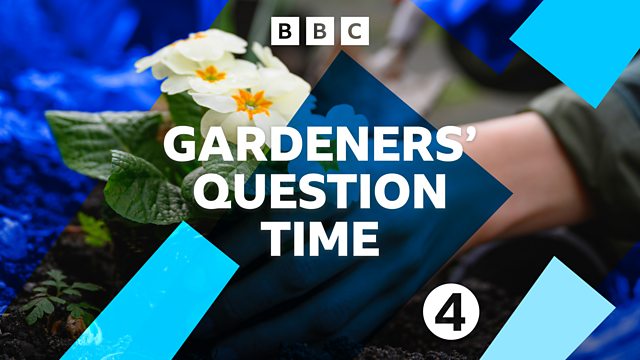Teesdale
Eric Robson hosts the horticultural panel programme from Teesdale. Pippa Greenwood, Matt Biggs and Christine Walkden answer the audience questions.
Eric Robson hosts the horticultural panel programme from Teesdale. Pippa Greenwood, Matt Biggs and Christine Walkden answer the audience questions.
This week, the panel recommend some 'must have' vegetables for a Victorian kitchen garden, how to get parsnips to grow in tricky conditions, and what best to replace a climbing rose with.
Also, Eric Robson meets with Margaret Bradshaw, a local botanist who has been documenting the plants of Teesdale for the past sixty years.
Produced by Dan Cocker
Assistant Producer: Hannah Newton
A Somethin' Else production for �������� Radio 4.
Last on
More episodes
Previous
Questions and Answers
Q – Has the panel ever used Alpaca poo to fertilise their garden. And, if so, would you recommend it?
��
Pippa – Simple answer is: I’m sure it’d be fine but I’d rot it down first because most animal (especially herbivore) manure is a bit too harsh without composting.��
Matt – Add it to the compost heap and it will break down more woody material
��
Q – We are restoring a Victorian walled kitchen garden.�� What are the ‘must have’ vegetables from that era that are still relevant today?
��
Christine – Skirret. Useful root vegetable that you can use raw.
Matt – Go for the heritage cultivars of veg we use nowadays.�� Also, try ‘Alexanders’ – it looks like a green ‘Cicely’.
Pippa – You could create hotbeds and try some Victorian-style pineapple cultivation
Eric – Don’t be too strict about the Victorian era – I grow a potato called ‘Arran Victory’ that is delicious but I think it’s more from the First World War period.
��
Q – I’ve got a beautiful variegated Geranium and I’ve taken cuttings that have all turned completely green.�� Why?
��
Pippa – I would be sure that it’s a plant that’s bred to be variegated and that can be a weakness – so I think that this is the plant reverting back to its original, stronger (unfortunately, green) form.�� Nothing you can do about it I’m afraid.
��
Q – What advice would you give to a novice looking to get more knowledgeable about gardening quickly?
��
Christine – Just do it.�� You don’t need prior knowledge and you can make lots of mistakes and lots of plants will still grow! Get stuck in and see what happens.
Matt – Join a local gardening club – good way to meet like-minded people who will be happy to help. And listen to GQT!
��
Q – I can’t get parsnips to grow. I live in a very exposed area with a very breezy garden at about 1000ft (305m). Do I stand a chance?
��
Matt – The soil is probably too cold and wet for the parsnips to germinate. I’d put a sheet of black polythene over the surface of the ground to warm it up and then delay your sowing till the end of April.�� Or start them off in modules and then plant them once they’ve got going.
��
Q – Living at 1500ft (450m) above sea level I’d like some advice on replacing a climbing rose.
��
Pippa – Go to a specialist local rose grower – they’ll know about good hardy plants that will grow locally.�� I would avoid putting a rose in the same spot as the last because you can get replant disorders.�� Try and plant it away from the original spot and, if you can, change the soil.��
Matt – Rosa rugosa is a hardy rose that could work.�� Then maybe go for a Honeysuckle like ‘Graham Thomas’ as well.
��
Q – I love celeriac but when I grow it it’s all top and no bottom – advice please.
��
Matt – It needs plenty of moisture so dig in well-rotted organic matter into a trench before planting.��
Christine – I think the issue is the length of the growing season up here.�� Celeriac needs a long growing season so you might not be getting the light you need.
Pippa – Use cloches over the first batch and make sure the moisture is even
��
Q – I have a ‘Vranja’ quince tree and it always flowers well but I get no fruit. What can I do?
��
Christine – Lack of pollination. For fertilization to take place the pollen needs to be moist. If it’s too dry at the time of flowering it might be worth giving it a really good watering when it is flowering.
Matt – Mulch round it as well when watering
Broadcast
- Sun 27 Mar 2016 14:00�������� Radio 4
Six of GQT’s naughtiest gardening innuendos
When Gardeners' Question Time got mucky.
Podcast
-
![]()
Gardeners' Question Time
Horticultural programme featuring a group of gardening experts


